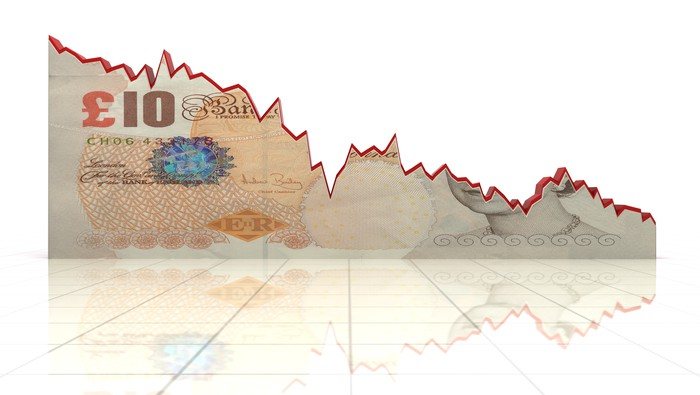Talking Points:
- Pound boosted as UK CPI holds steady.
- But Brexit risks will likely weigh on Sterling in the long term.
- The EURGBP pair is a good indicator of GBP sentiment.
See the DailyFX Economic Calendar and see what live coverage for key event risk impacting FX markets is scheduled for the week on the DailyFX Webinar Calendar.
The Pound made some small gains today after news that UK consumer price inflation held steady at 2.3% in March, matching the consensus.
But the stable headline figure was offset by a weaker core number – which fell to 1.8% in March from 2.0% in February, slightly below the consensus 1.9% – and it seems unlikely that the Pound can sustain its rally in the longer term if the CPI data continue to point to no precipitous shift in stance at the Bank of England.
One member of the bank’s Monetary Policy Committee -- Kristen Forbes – wanted a rate rise when the BoE voted to keep interest rates unchanged at 0.25% at its meeting last month. That’s the first time in eight months the decision was split. Forbes, who significantly will step down for her role by June, said that UK inflation was rising fast enough not to be tolerated any longer and was likely to remain above the BoE’s 2% target for at least three years.
But Mark Carney and Co are looking through highheadline inflation rates, which they say can be explained by the slump in the Pound sparked by last year’s Brexit vote. They’re more worried about weaker wage growth and retail sales.
Take the comments last week from MPC member Gertjan Vlieghe. He said a rise in interest rates in the short term is unnecessary because consumer finances are increasingly squeezed and the rise in inflation appears temporary. “Inflation is set to rise but that seems entirely accounted for by exchange rate pass-through, which, although persistent, will ultimately fade,” he said.
He added that wages showed “no sign of sustained upward momentum yet”, suggesting that “despite better than expected growth, we have not had higher-than-expected underlying inflation pressure”.
So without those signs of inflation bubbling under the surface, there’s no need to reverse last August’s decision to cut interest rates to 0.25% and expand quantitative easing. And with economic and political uncertainty likely to intensify as the Brexit process gets under way, policymakers at the central bank are likely to continue to stress the need to look through any further upturn in inflation and focus instead on the need to keep policy on hold to support economic growth.
What’s more, data tomorrow are forecast to reveal that average hourly earnings growth slowed to an annualized 2.1% from 2.2% in January. And retail sales growth slowed at the beginning of the year, according to data from the British Retail Consortium released this morning.
So the bank looks likely to remain extremely accommodative in its monetary policy, which will weigh on the Pound in the longer term.
There’s also a smaller chance of further rate cuts: remember that Carney said at the last monetary policy meeting that ‘policy can respond, in either direction’.
Today, the Pound rose against its peers, but has been unable to gain significant ground. It’s particularly telling that the Pound has been unable to make substantial advances against the Euro, which is facing problems of its own owing to a fresh spike in French political anxiety and after this morning’s Euro-Zone industrial production figures missed estimates. Output dropped 0.3% month-on-month in February (versus a forecast rise of 0.1%) and was up only 1.2% year-on-year against a predicted 1.9%. However, the more important German ZEW survey of economic sentiment in April came in at a better-then-expected 19.5, a 17-month high.
Upcoming GBP Event Risk
| Events | Date, Time (GMT) | Forecast | Previous |
|---|---|---|---|
| UK Employment Change (FEB) | April 12, 0830 | 68k | 92k |
| UK Weekly Earnings (FEB) | April 12, 0830 | 2.1% | 2.3% |
| Bank of England Governor Mark Carney Speaks at Event in London | April 12, 1200 | 0.6% | 0.6% |
Markets
| Index / Exchange Rate | Change (Exchange Hours/GMT Session Rollover) | Market Close/Last |
|---|---|---|
| FTSE 100 | 0.65% | 7,397 |
| DAX | 0.00% | 12,202 |
| GBP/USD | 0.34% | 1.24820 |
| EUR/USD | 0.15% | 1.0613 |
| EUR/GBP | -0.05% | 0.8532 |
--- Written by Oliver Morrison, Analyst
To contact Oliver, email him at oliver.morrison@ig.com
Don't trade FX but want to learn more? Read the DailyFX Trading Guides






